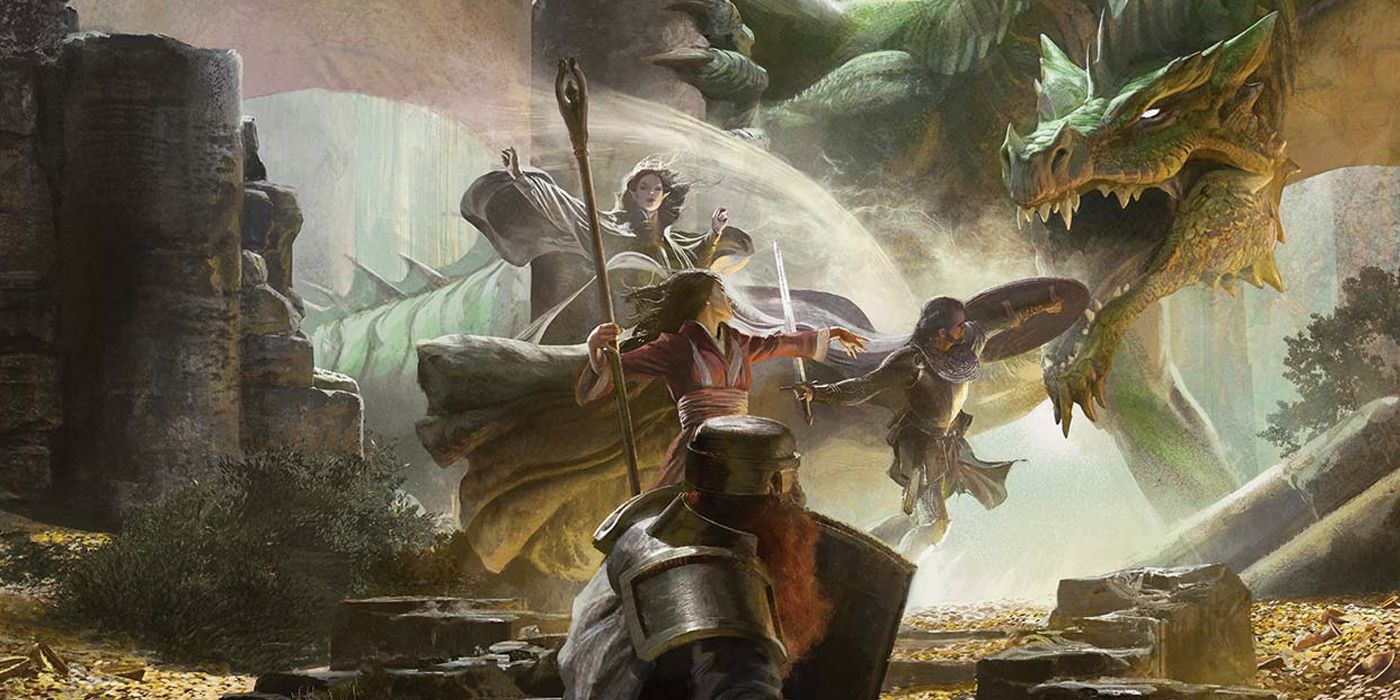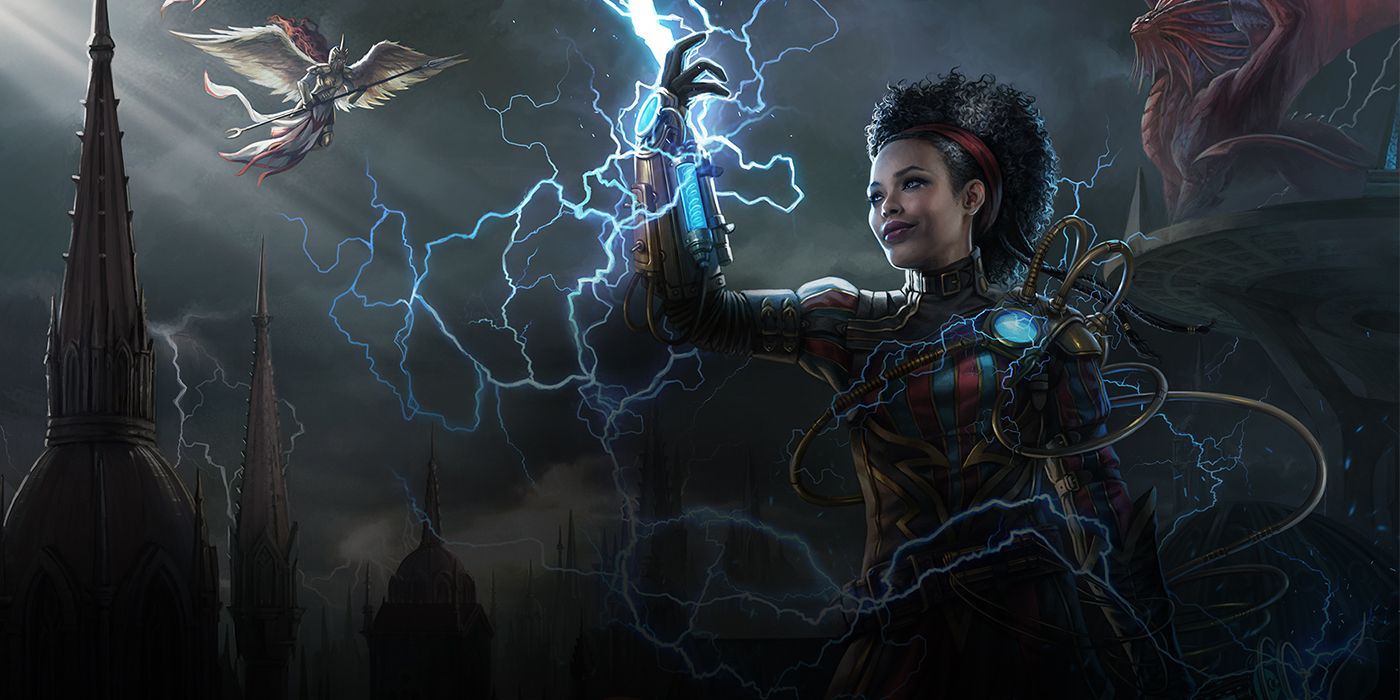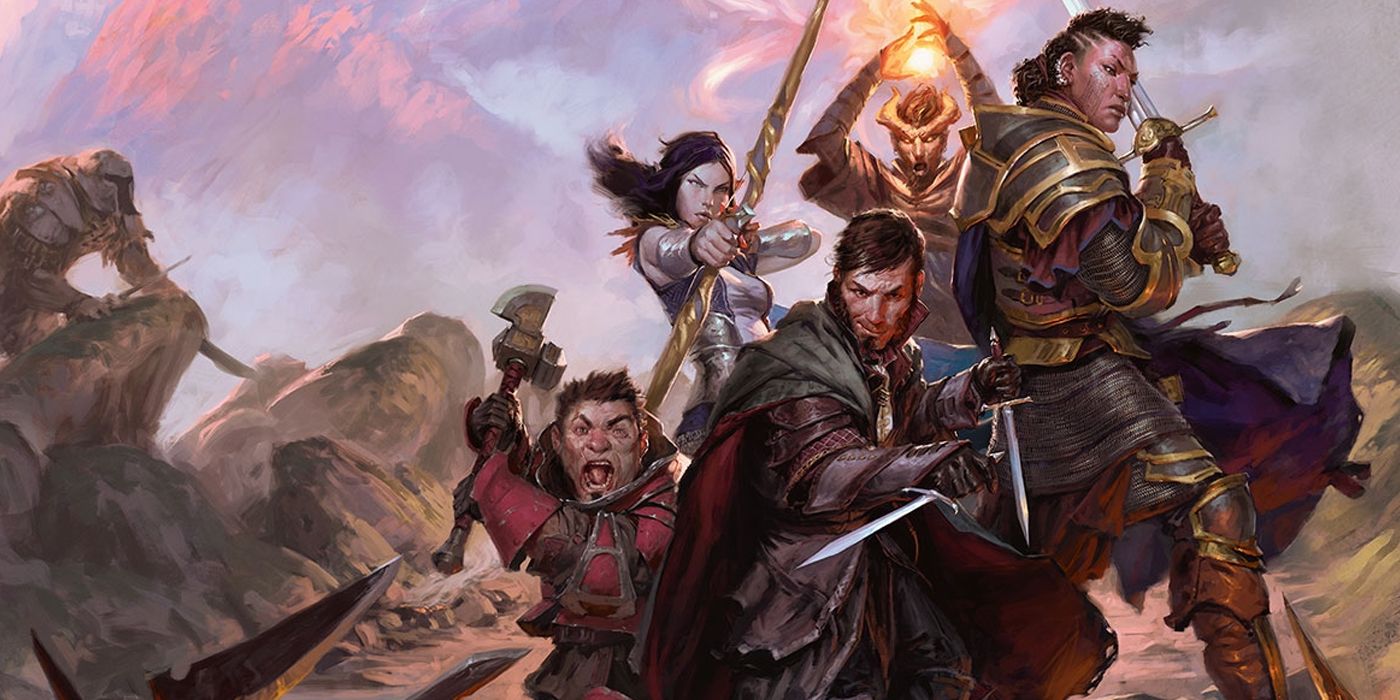Picking up Dungeons &. Dragons for the first time can be as nerve-wracking as it is fun, but sooner or later, it dawns on players that once they've made their character, they've got to pretend to be that character for multi-hour sessions indefinitely. It can be an incredibly rewarding game to play, but sometimes the prospect of role-playing scares potential players off—and it shouldn't!
Sure, role-playing a Dungeons & Dragons character might take a few sessions to really get the hang of, but that's to be expected. Anybody looking to up their role-playing game can do exactly that, as long as they're willing to put in the effort and bring up new in-game experiences.
Personality Matters
First things' first: all D&D characters need a solid foundation if they're going to make for a fun roleplaying experience, and a detailed personality and backstory is the way to do that. Think about the character's traits, both physical and mental, and how those traits would play out in their life. In fact, it's easier sometimes to start with a character in mind and then choose their class and race; players shouldn't feel restricted to using certain characteristics solely because their character is a class where that stereotype is common.
And players shouldn't put too much pressure on themselves to think of everything all on their own—using a favorite movie character's personality as a starting point is just as valid as coming up with something from scratch. The personality, appearance, and backstory of a D&D character is the player's way of telling stories through a certain lense, so really think about what lense is most appealing!
Engage
Once the character is set up and the game has begun, it's time to dive into that character's shoes. Starting out slow is fine for beginners; just remember that interaction is key. Dungeons & Dragons is the definition of interactive storytelling, and while it may feel like the DM is responsible for telling that story, the truth is, everyone in the group is just as much in the role of a storyteller. So when the DM sets up a scene, do something. Don't use the excuse "my character wouldn't do that," because the whole point of D&D is that options are limitless: if the character wouldn't do "that," then have them do something else. Describe the character's movements, actions, body language, and make sure they're engaging with the rest of the party and with whatever issue is at hand.
Also—and this is something first-time or nervous players should keep in mind—don't be afraid of talking. Forcing roleplay isn't necessary, because the moments will come naturally, and if a moment arises where it feels like the character would say something either to the group, another PC off to the side, an NPC, or anything else, do it. Let the interactions happen because the game will absolutely keep moving after them too.
Find a Voice
This one is going to sound difficult and probably a little ridiculous to anybody who isn't a trained actor or improviser, but it applies to all. One of the easiest ways to get into the mindset of the character for a session (and distinguish player from character, which is important) is to find a specific voice for the character that isn't the player's "regular" voice. Don't worry about sounding weird or being inexperienced; everyone is worried about that and nobody needs to, because the goal of a good D&D session is pretty much to have fun.
It doesn't even need to be a different accent, just a way of speaking that makes other players think of the character, and not the person playing them. Remember, no D&D player needs permission to make up a funny voice. Just spend a little time before the game finding it, and the rest will come naturally through gameplay.
Create Boundaries
As mentioned previously, a good role-player will figure out how to separate themselves from their character. Sometimes players can slip into a habit of doing things that they would do, and not what their character would do, and knowing that difference is key. It's fine to combine elements of oneself into a character, but at the end of the day, D&D isn't meant to be a self-insert type of game (unless that's the campaign theme or something). So between the character's established personality, age, alignment, gender, values, and general backstory, a few of those should be completely different from the player. Otherwise, it's not role-playing at all, and getting into the game becomes significantly harder.
Respect Fellow Players
Playing a party of murder-hobos and terrorizing NPCs is one thing, but harming other players within the party is completely another. Everyone is there to have fun, which is difficult if one PC starts attacking another. Now, a conflict between PCs is totally fun and interesting; the lesson here isn't that everybody needs to get along all the time no matter what, but that conflicts can be played in ways that don't involve ruining another player's fun by killing their character. Share the storytelling with everyone in the group, play off of each other, save aggression for the monsters, and don't needlessly hurt another PC. That's just rude.
With that, hopefully, anybody about to do some D&D roleplaying should be ready to start. At the end of the day, D&D is a game (albeit an extremely immersive, hands-on game), and everyone is trying to have a good time with one another, so facilitate that while playing a character. Go with the flow, think as the character, and roleplay accordingly; with these ideas in mind, players can have smooth sailing at their next Dungeons & Dragons session.



